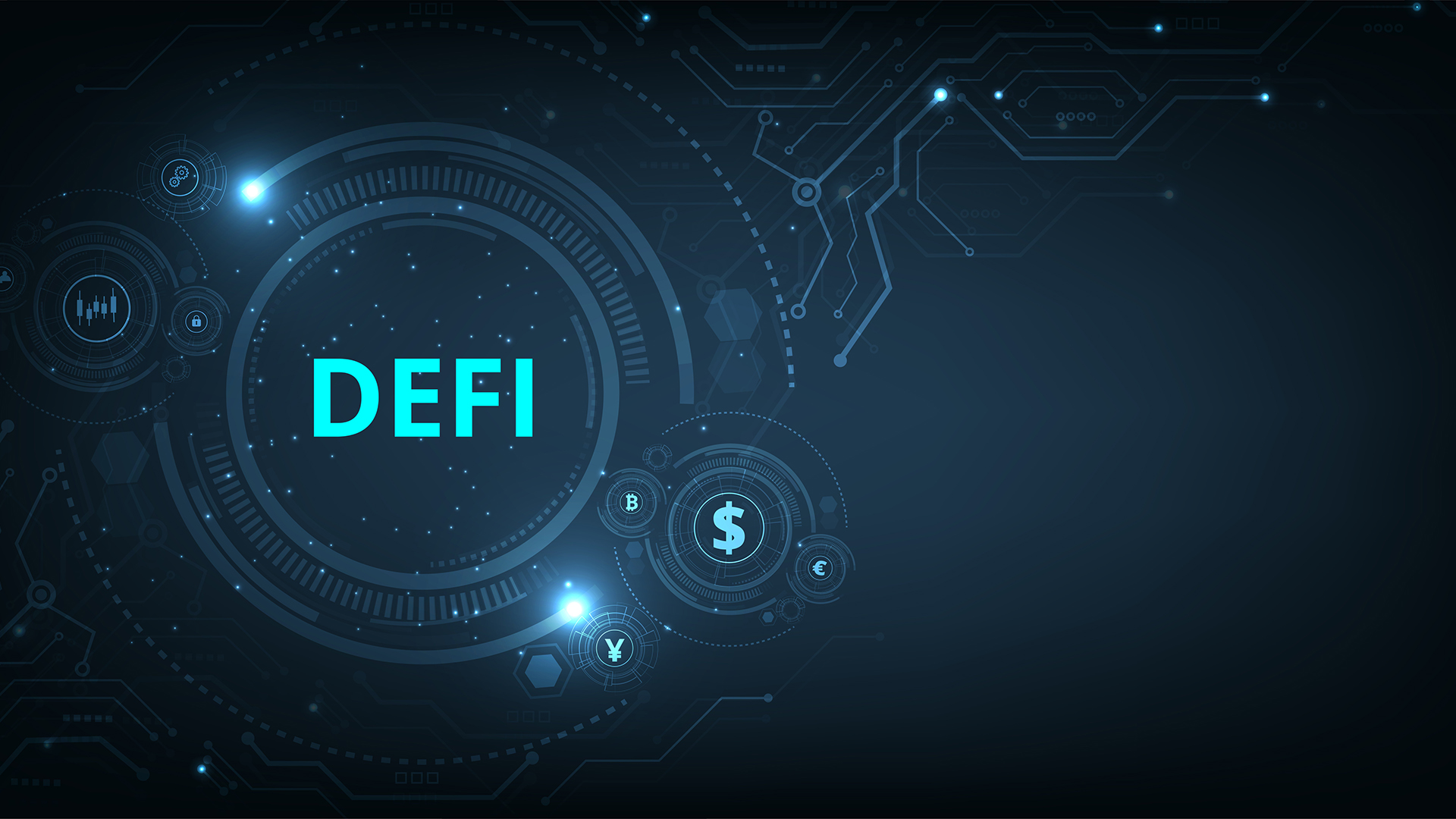Decentralized Finance (DeFi) has surged into public attention following increasing global investments in blockchain applications, the push for financial inclusion through CBDCs, and the evolving regulatory frameworks by the G20, IMF, and India’s own Digital Rupee framework. With growing relevance in India’s fintech space and amid discussions on the Digital Public Infrastructure (DPI) model, DeFi stands at the intersection of innovation, disruption, and policy challenge.

What is Decentralized Finance (DeFi)?
DeFi refers to financial systems built on blockchain technology that operate without intermediaries like banks, brokerages, or clearing houses. Instead, it uses smart contracts on decentralized blockchain networks—especially Ethereum—to enable services such as lending, borrowing, trading, and insurance.
Unlike traditional finance (CeFi), DeFi enables peer-to-peer transactions, transparency, and programmable trust.
Core Features of DeFi
- Open & Permissionless Access: Anyone with an internet connection and crypto wallet can use DeFi services without approvals from centralized institutions.
- Smart Contracts: Self-executing codes running on blockchains (mostly Ethereum) automate transactions and eliminate human intermediation.
- Non-Custodial Systems: Users retain full control of their assets via digital wallets, reducing reliance on custodians.
- Tokenization of Assets: DeFi platforms enable tokenized real-world assets (RWA) like fiat currencies, real estate, and commodities.
- Interoperability: Different DeFi applications or “dApps” can integrate seamlessly through common blockchain standards (e.g., ERC-20 tokens).
Major DeFi Use Cases
- Decentralized Exchanges (DEXs): Platforms like Uniswap and PancakeSwap enable users to trade tokens without centralized oversight.
- Lending & Borrowing Platforms: Protocols like Aave and Compound allow users to lend crypto assets and earn interest or take loans with collateral.
- Stablecoins: Cryptocurrencies like DAI maintain stable value using algorithmic mechanisms or asset backing.
- Yield Farming & Liquidity Mining: Users earn incentives for providing liquidity to DeFi protocols.
- Decentralized Insurance: Protocols like Nexus Mutual provide risk coverage without traditional underwriting systems.
Risks and Challenges
- Regulatory Uncertainty: Most DeFi protocols operate outside traditional financial regulations, creating compliance and enforcement gaps.
- Security Vulnerabilities: Smart contracts, if poorly written, are vulnerable to exploits, hacks, and rug-pulls.
- Market Volatility: The underlying crypto-assets are highly volatile, impacting lending, borrowing, and collateral value.
- Lack of Consumer Protection: No centralized entity is responsible for user support, dispute resolution, or fraud recovery.
- Scalability Issues: Network congestion and high gas fees on Ethereum limit DeFi’s mainstream usability.
DeFi in India: Opportunities and Cautions
India’s proactive push for Digital Public Infrastructure (DPI) and the Digital Rupee (CBDC) opens avenues for blockchain-based financial innovation. While RBI has warned against private cryptocurrencies, DeFi’s open-source programmable structure could complement India’s digital financial architecture if well-regulated.
IndiaStack + DeFi = Future of Inclusive Finance?
With Aadhaar, UPI, and DigiLocker, India can explore regulated DeFi rails to build programmable public finance.
However, this must be approached with robust regulatory frameworks, inter-agency collaboration (RBI-SEBI-FIU), and cross-border cooperation to prevent misuse for terror financing, tax evasion, and money laundering.
Global Developments
- EU’s MiCA (Markets in Crypto-Assets Regulation) is integrating DeFi monitoring in its supervisory framework.
- IMF and FSB joint report (2023) called for coordinated regulation of DeFi, especially around cross-border risks.
- G20 2023 India Presidency highlighted the importance of regulating DeFi and crypto assets for financial stability and consumer protection.
Decentralization ≠ Deregulation
DeFi promises a future of programmable, borderless, and inclusive finance—but it must be anchored in accountability and resilience.
“The future of finance may be decentralized, but it must not be lawless. Regulation must match innovation—step for step.” DeFi is not just a technological disruption—it’s a philosophical one. As India emerges as a global fintech leader, balancing sovereign regulatory control with permissionless innovation will be the key to shaping a responsible DeFi ecosystem that works for all.

